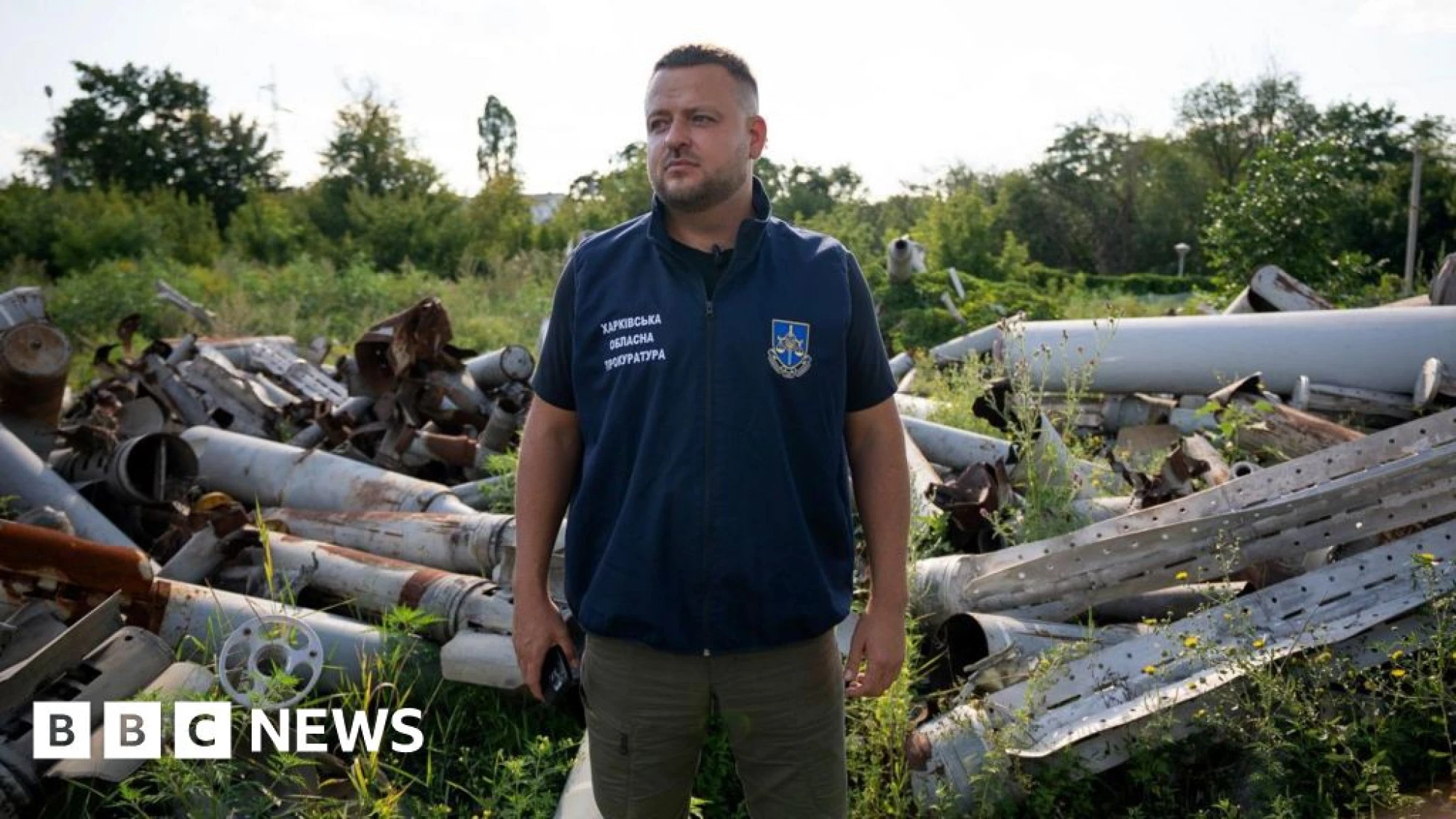Ukraine war: Twisted wreckage shows sanctions haven't yet stopped Russia

In Kharkiv, investigators gather evidence of Russian attacks - and how it has dodged sanctions.
Watch LiveBritish Broadcasting CorporationHomeNewsSportBusinessInnovationCultureArtsTravelEarthAudioVideoLiveHomeNewsIsrael-Gaza WarWar in UkraineUS & CanadaUKUK PoliticsEnglandN. IrelandN. Ireland PoliticsScotlandScotland PoliticsWalesWales PoliticsAfricaAsiaChinaIndiaAustraliaEuropeLatin AmericaMiddle EastIn PicturesBBC InDepthBBC VerifySportBusinessExecutive LoungeTechnology of BusinessFuture of BusinessInnovationTechnologyScience & HealthArtificial IntelligenceAI v the MindCultureFilm & TVMusicArt & DesignStyleBooksEntertainment NewsArtsArts in MotionTravelDestinationsAfricaAntarcticaAsiaAustralia and PacificCaribbean & BermudaCentral AmericaEuropeMiddle EastNorth AmericaSouth AmericaWorld’s TableCulture & ExperiencesAdventuresThe SpeciaListEarthNatural WondersWeather & ScienceClimate SolutionsSustainable BusinessGreen LivingAudioPodcast CategoriesRadioAudio FAQsVideoLiveLive NewsLive SportHomeNewsSportBusinessInnovationCultureArtsTravelEarthAudioVideoLiveWeatherNewslettersWatch LiveOn Ukraine's front line, twisted wreckage shows sanctions haven't yet stopped Russia2 days agoShareSaveJonathan BealeDefence correspondent in KharkivShareSaveLee Durant/BBCDymtro Chubenko collects and documents evidence of Russian attacksSince Russia launched its full-scale invasion of Ukraine, Western nations have imposed far-reaching sanctions on the aggressor, in a bid to stymy its war effort.
But on the ground here in Ukraine, these sanctions seem to have limited impact.
Just outside Kharkiv, at a secret location, lies a collection of twisted metal remnants from attacks in and around the city. It's a scrapyard of savagery - the remains of many of the Russian bombs, rockets, missiles and drones used to hit in and around Kharkiv over the past three and a half years.
"This is the material evidence with which we, as prosecutors, will prove the guilt of Russia in committing war crimes," Dymtro Chubenko of the Kharkiv Region Prosecutor's Office tells me. Every piece of rocket and drone here has been carefully collected and analysed.
Dmytro shows me one of the latest editions – a Russian version of Iran's Shaheed drone. Russia has recently been firing hundreds of these Kamikaze drones at Ukraine's towns and cities. They're relatively cheap to make, he tells me – about $20,000 (£15,000) each.
https://www.bbc.com/news/articles/c7075glzp88o?at_medium=RSS&at_campaign=rss
Rating: 5